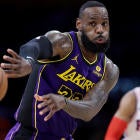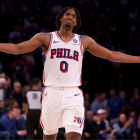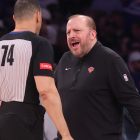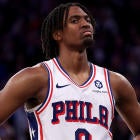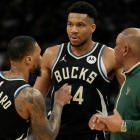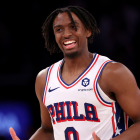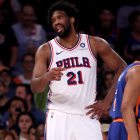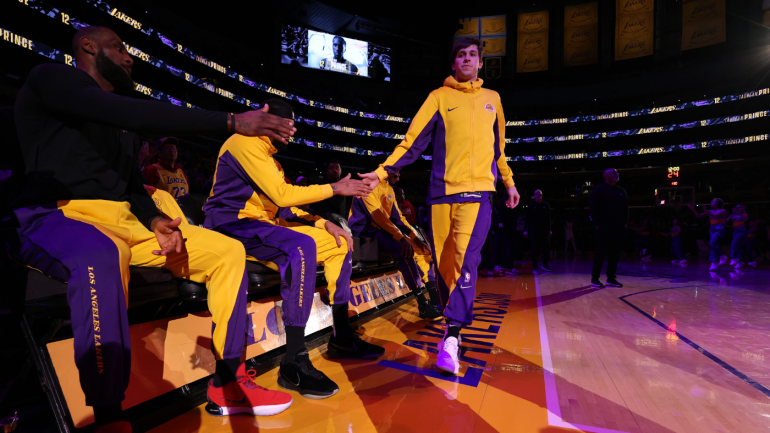
There was a bit of confusion when it came to Darvin Ham's starting lineup on Monday. During his pre-game press conference, ESPN's Dave McMenamin asked the Los Angeles Lakers' coach if they were going back to last season's starting lineup of LeBron James, Anthony Davis, Jarred Vanderbilt, D'Angelo Russell and Austin Reaves. Ham confirmed that was the plan "for the foreseeable future," but that group ultimately didn't even start the game. Ham would later clarify to McMenamin after the press conference that he had misheard the question and that Taurean Prince, not Vanderbilt, would be the team's fifth starter.
It was a somewhat fitting sequence of events for a Lakers team that has been defined by its inability to settle on a starting lineup. The Lakers, who rank 29th in the NBA with a minus-12.8 first-quarter net rating, have now used 11 of them on the season, and on the night in which they were expected to return to the lineup that took them to the Western Conference Finals last spring, they instead returned to the five they used on opening night. It worked in a 112-105 Lakers win over the Oklahoma City Thunder, but the group as a whole has had mixed results this season.
That unit played a major role in the Lakers setting records for first-quarter futility early in the season, but don't expect it to go anywhere any time soon. Ham again confirmed that he plans to stick with this group moving forward, and he's already shared his beliefs on the subject this season. "You can't just keep, on a whim, changing," Ham said after a Dec. 20 loss to the Bulls. "That's a big deal when you change your starting lineup at this level."
Of course, Ham wound up changing his lineup again three days later, when the Lakers faced the Thunder. As they did on Monday, the Lakers defeated Oklahoma City. But for a variety of reasons, they have thus far been unable to maintain continuity in their starting lineup.
While Ham noted that the goal of Monday's lineup was to put "as much skill and shot making around our two captains as possible," it's worth noting that the absence of former starter Cam Reddish, who is dealing with a knee injury, likely played a part in the change. Reddish has started 24 of the last 25 games he's played in.
Reddish isn't the only notable injury to deprive the Lakers of starting lineup consistency. Last year's starting group has played only nine total possessions together this season, and Vanderbilt's absence when the season began is part of what prompted the move to Prince in the first place. Vanderbilt is back now, and the option to return to that group —which outscored opponents by 37 points in 77 total regular-season minutes a year ago— has been available to Ham. He still hasn't gone to it, and it's just about the only lineup he hasn't yet used.
The Lakers initially moved off of this group for defensive purposes. Reaves and Russell are both below-average defenders, and without Vanderbilt to protect them defensively, Reddish was inserted in Reaves' place to provide theoretical balance. The Lakers have spent the season trying and largely failing to achieve that balance, with the offense most often suffering as a result. Russell in particular has seen his minutes yanked around. He's played 77 in the last two games, but averaged just 22.8 in the seven games that preceded them.
And then there's the matter of the trade deadline, now less than a month away. Russell has been involved in just about every Lakers rumor. His $17 million salary will be needed for just about any trade of note, particularly those that involve a guard. The Lakers have been heavily linked to Zach LaVine and Dejounte Murray, both scoring guards in Russell's mold. Any significant deal would further destabilize the Lakers' starters, but as they learned last season, that might not be the worst thing.
The Lakers are 20-21. If there was a solution to their problems as simple as "revert to the opening night lineup," they likely would have landed on it before the halfway point of the season. They landed on a solution to the specific problems that the Thunder posed on Monday. Their own recent history suggests that the solution is closer to temporary than it is to being permanent.














